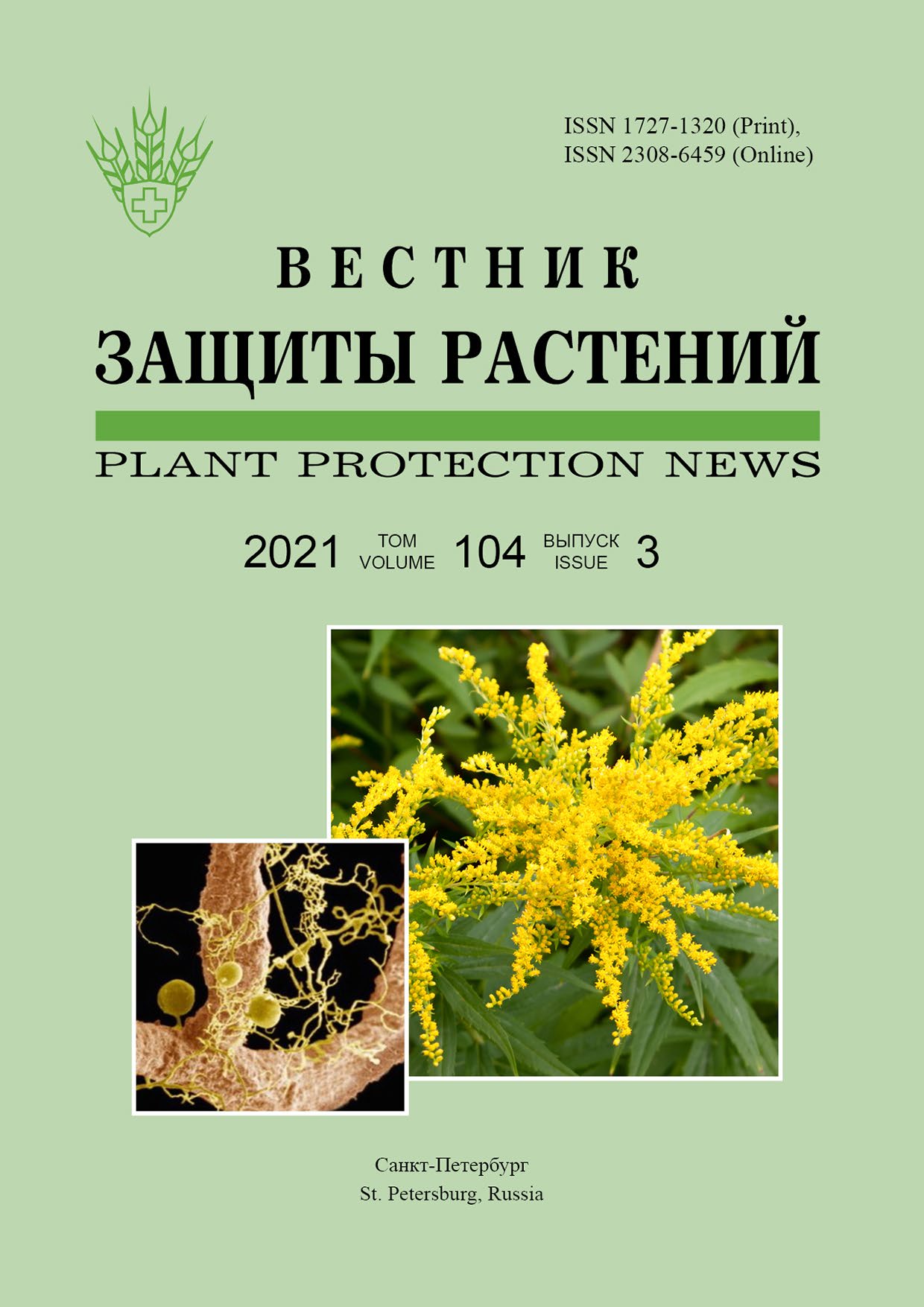Compatibility of the fungus Lecanicillium muscarium and the predatory mite Amblyseius swirskii for their combined application against the greenhouse whitefly Trialeurodes vaporariorum
Keywords:
entomopathogenic fungi, predatory mites, biocontrol agents, side effect, beneficial arthropodsAbstract
The present study evaluated effects of the fungus Lecanicillium muscarium (Ascomycota: Hypocreales) and an organic extract from its mycelium on the greenhouse whitefly Trialeurodes vaporariorum (Hemiptera: Aleyrodidae) and its predator, mite Amblyseius swirskii (Acari: Phytoseiidae). Mites were exposed to fungal spores or organic extract prepared from L. muscarium mycelium. No negative effect was shown on the predator feeding on T. vaporariorum nymphs treated with fungal conidia at a concentration of 5 × 107 spores/ml; by day six the number of mite eggs and nymphs was 18.7 % higher than on leaves treated with Tween 80. In contrast, treatment of leaves with a 0.5 % alcohol extract derived from L. muscarium mycelium caused 35 % mortality of A. swirskii adults by day two. In a trial conducted in a commercial greenhouse on rose plants, the application of L. muscarium conidia followed by the release of A. swirskii suppressed T. vaporariorum more effectively than each of the control agents applied separately.



